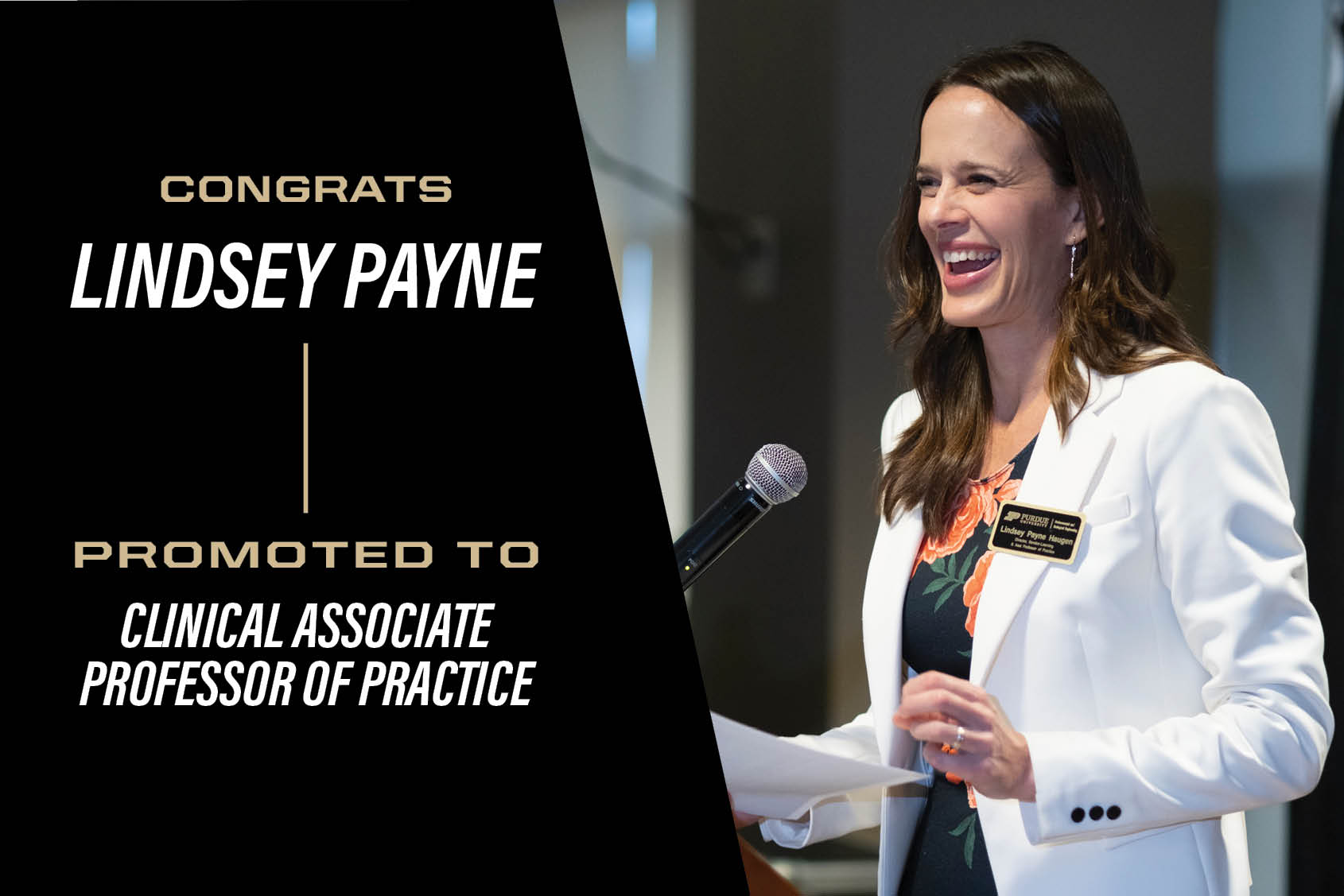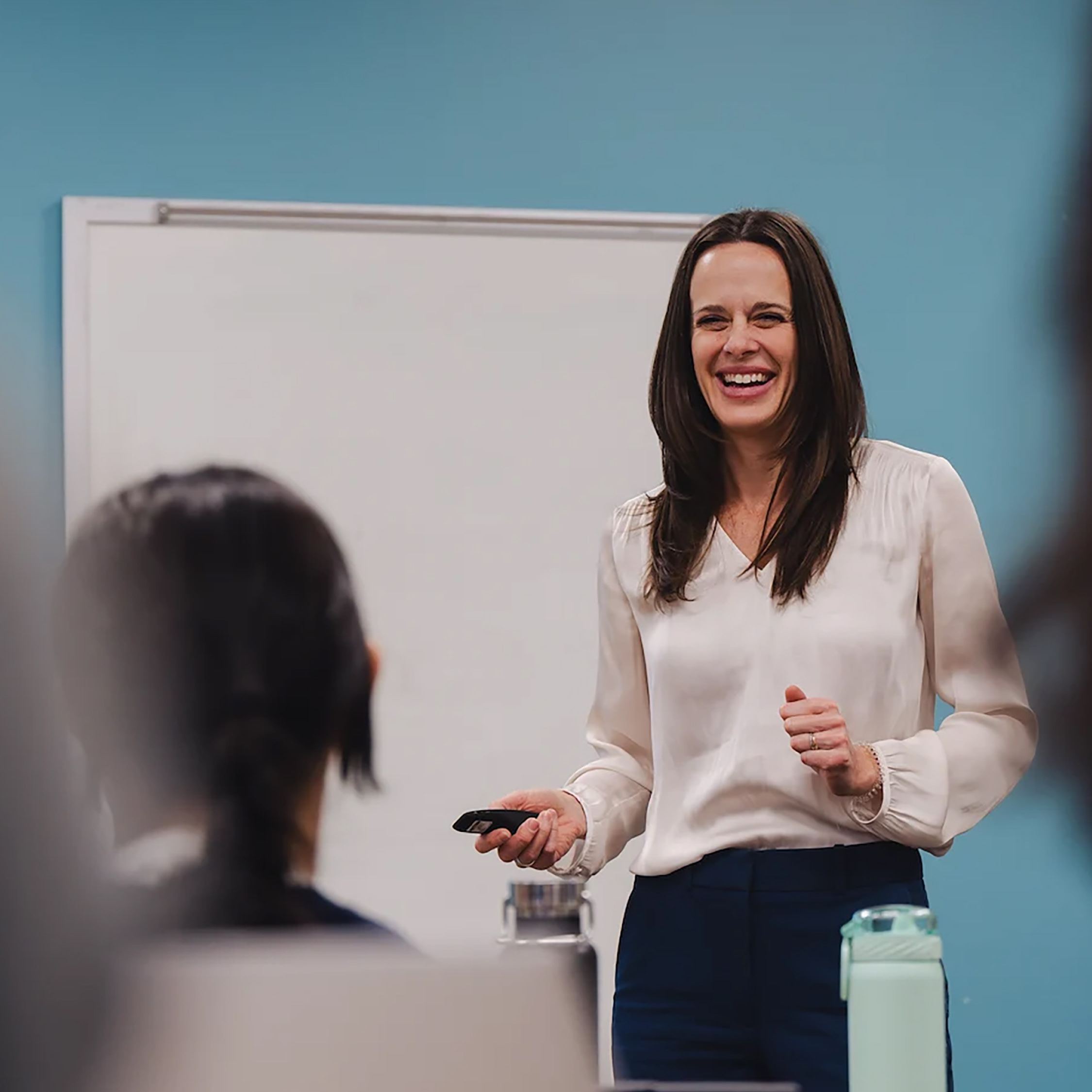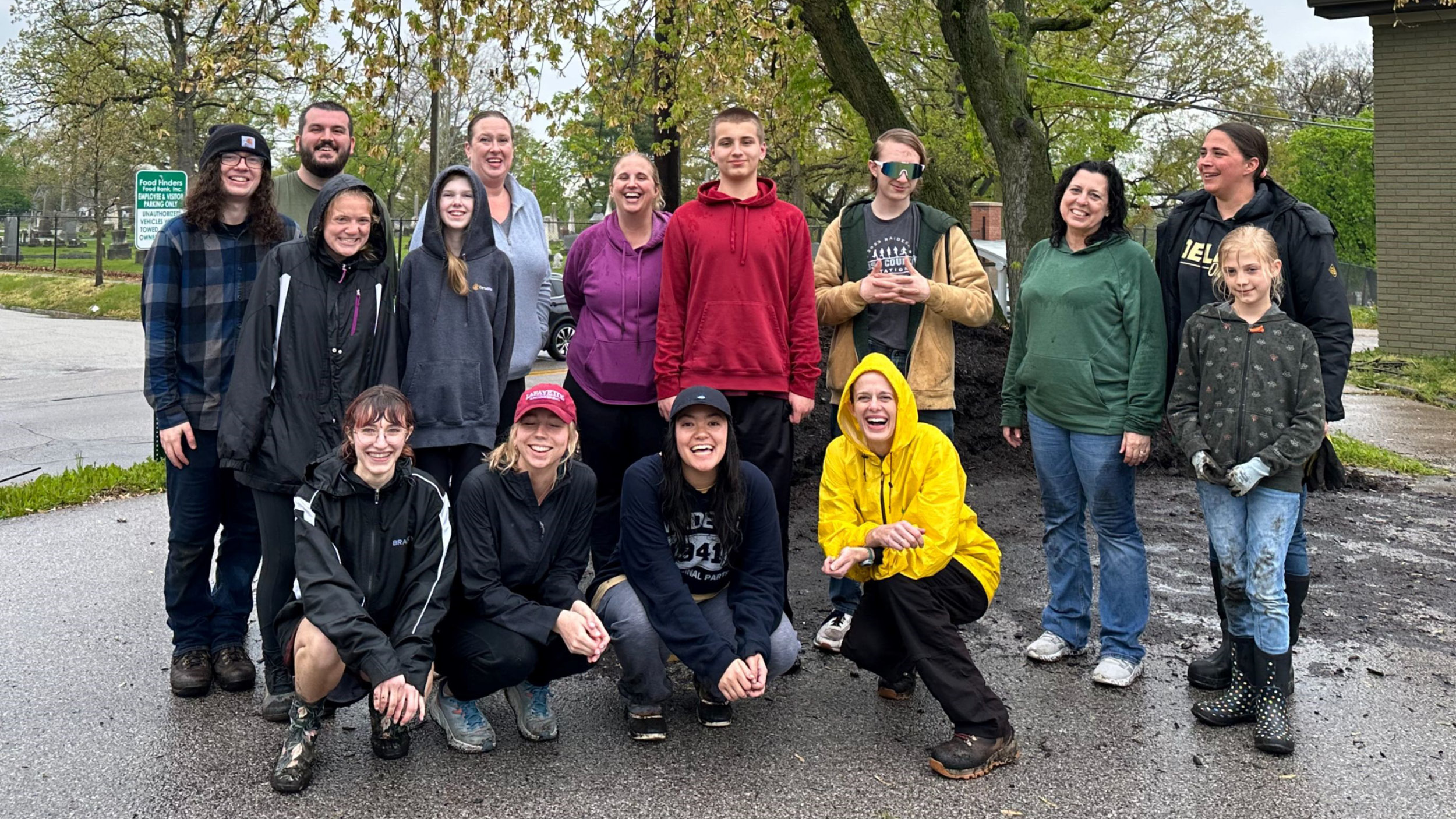Lindsey Payne takes on new title of Clinical Associate Professor of Practice in Environmental and Ecological Engineering

Payne is no stranger to EEE. She has had ties to the department and Dr. Larry Nies for over 10 years. In her new role, she hopes to continue to support and grow EEE by collaborating with faculty and staff to expand curricular offerings and enhance undergraduate recruitment.
“I am proud to be the first professor of engineering practice (PEP) promoted in EEE. I hope it will set an appropriate pathway for future junior PEPs at Purdue,” Payne shares. “Generally speaking, PEPs focus on the professionalization of students. I want them to have the knowledge, skills, and experience to be truly successful in their first full-time position post-graduation.”
“We often teach courses positioned towards professional practice and the skills and assets students will need in those spaces, but we all have unique backgrounds. Some professors of practice worked in industry for 20 years, some come in with programmatic, teaching, or engagement expertise. These professors can say “We know this because we did it,” which seems to resonate well with students,” Payne explains.

Payne smiles while teaching an undergraduate course.
Payne came into the role with experience in engagement and teaching and learning. She prioritizes keeping a pulse on her EEE courses and adapting to students’ needs. This summer she plans to revamp some of her curriculum to better meet the needs of current students. She notes that each year of students has unique motivations and interests, and tapping into those “passion points” is key to her teaching strategy.
“One of the fundamental principles of teaching is caring,” Payne states, “It’s not uncommon for me to hear, ‘You are the first professor who has cared.’ I don’t believe that is how it should be.”
A passionate group of students made an impact on Payne by sharing what they were learning with strangers. After working on a project for EEE 47200, a class where students design and build rain gardens in the community, a group of students went to a restaurant near their site. They found themselves sharing about the project and what the rain garden would do for the community.
“When I realized that I had fostered a passion in my students, a passion about the topic and the course deep enough that they're now going out and telling others about it… I was just like, all right, my work is done,” Payne remarked.
 Payne (front, right) with students and community volunteers after installing a rain garden at Food Finders in Lafayette.
Payne (front, right) with students and community volunteers after installing a rain garden at Food Finders in Lafayette.
In a previous role at Purdue, Payne worked to implement better teaching and learning strategies across the university as a member of the university Teaching Academy. Recently she participated in a workshop aimed to encourage faculty across the university to implement more sustainability education into their individual fields. She believes sustainability isn’t just a EEE topic, it’s applicable in every discipline. And it’s part of Payne’s personal mission to educate the world and help build sustainable, resilient communities.
As Purdue keeps researching, educating, and changing, we acknowledge the minds like Payne who work behind the scenes of this nationally recognized university. Lindsey Payne is an example of persistence, passion, and thoughtfulness as she continues to push forward in her personal mission.
Congratulations, Prof. Payne!
Written by: Lacy Gehmlich
